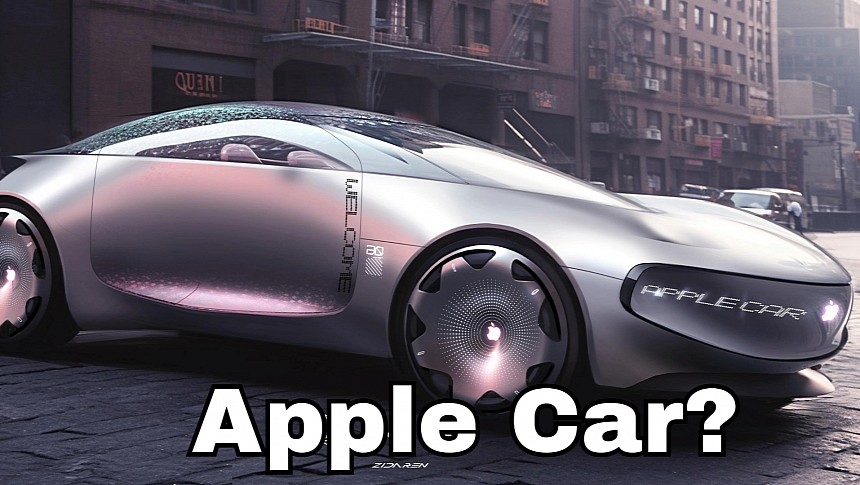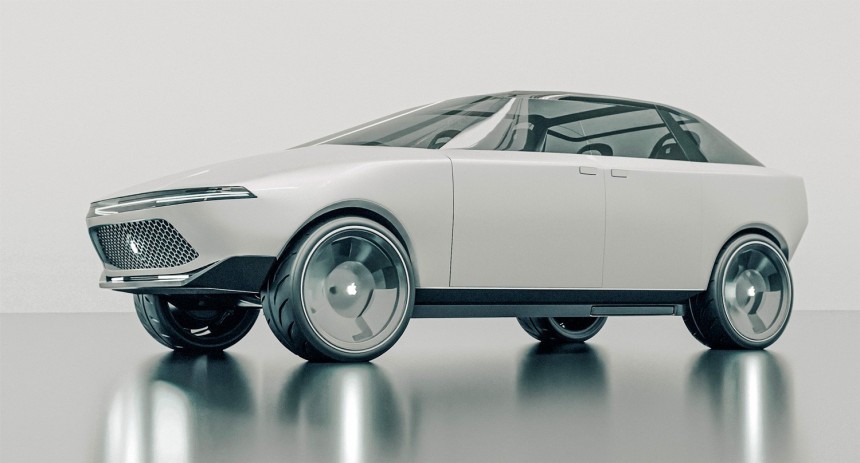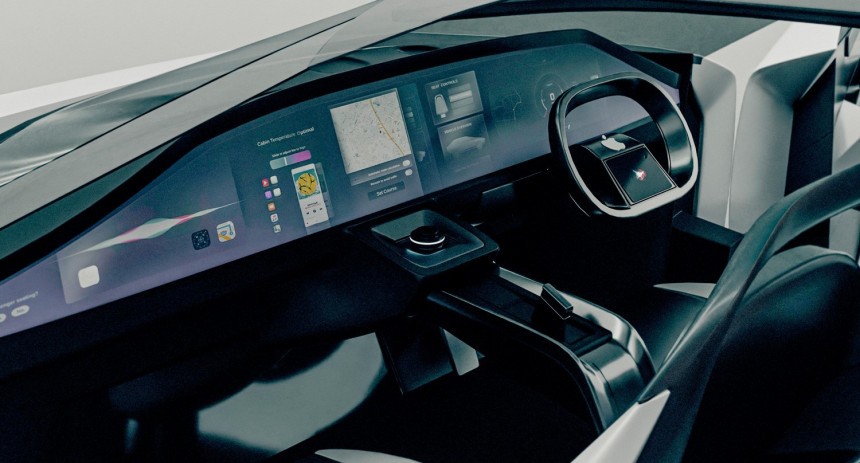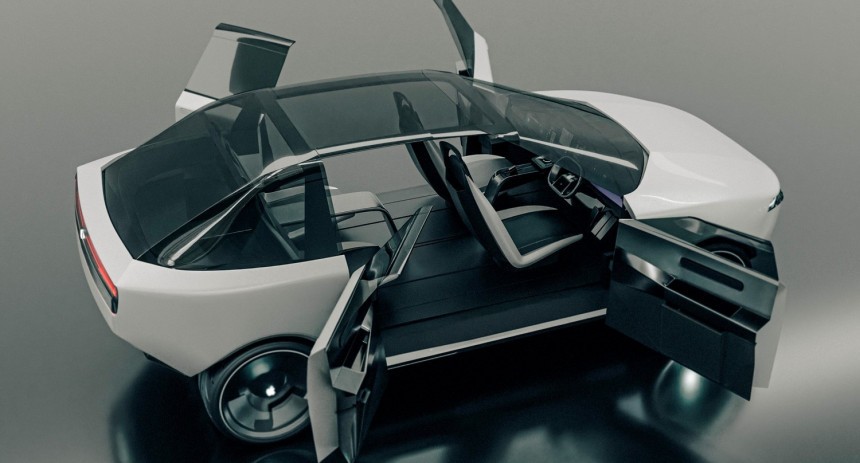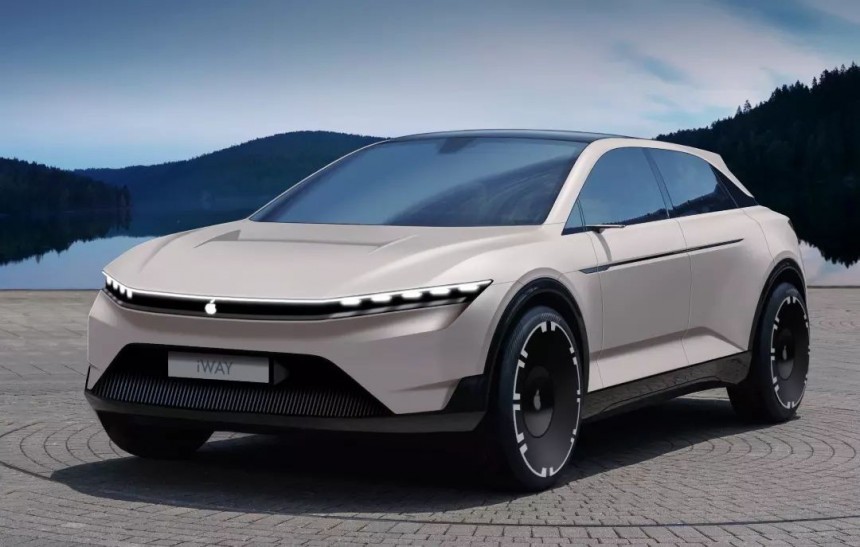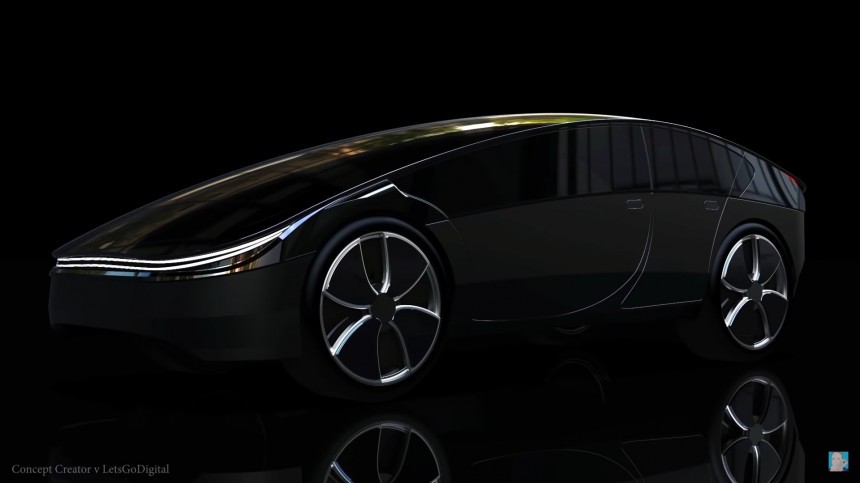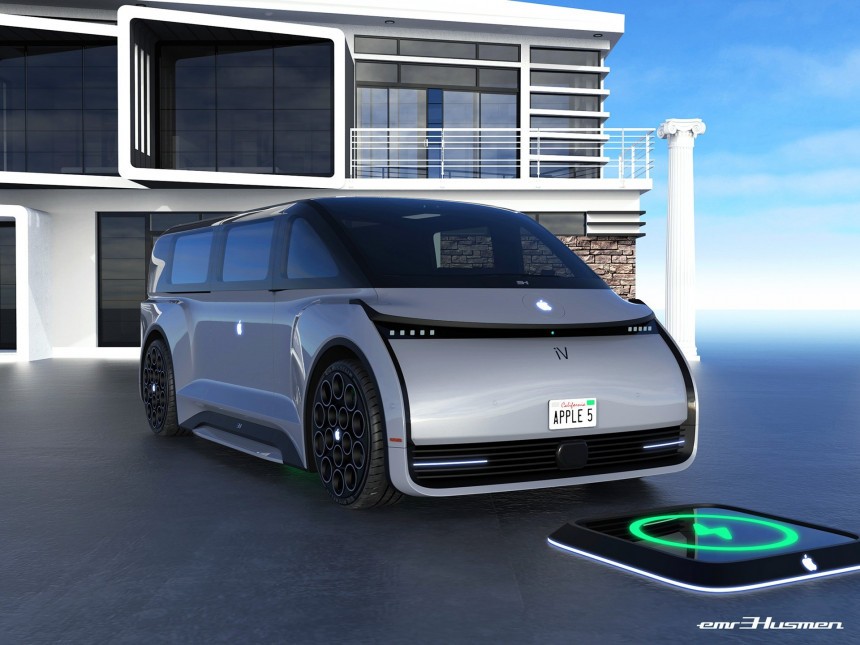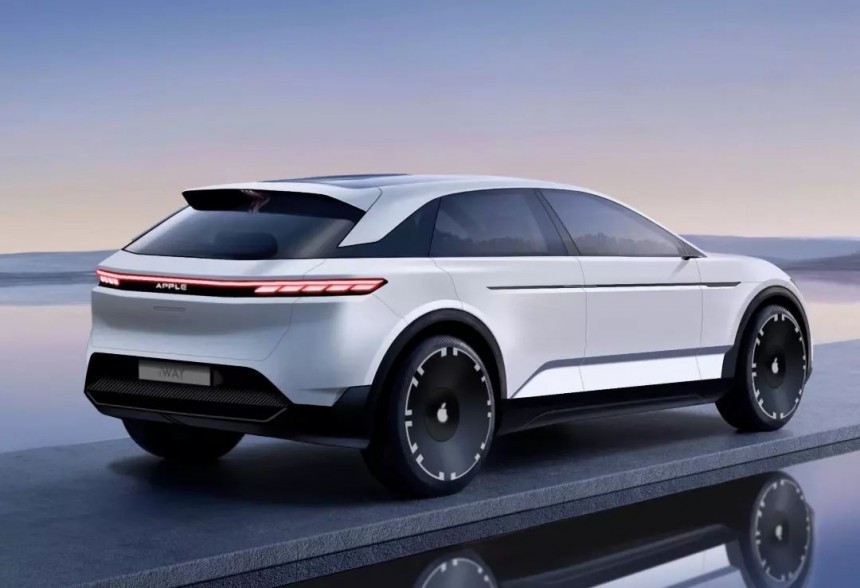Rumors about Apple's intention to build a car surfaced in 2014, and given Apple's secretive culture, we still don't know if we'll see a car with the Apple logo on it. The project has started, ended, and rebooted, teams have been created and disbanded, patents filed and forgotten. Nine years later, rumors and educated guesses are all we have about the hypothetical iCar project.
The automotive industry has been considered a walled garden, impossible to access from the outside. Few new carmakers have managed to enter the market, and even fewer have survived. If anything, existing carmakers have partnered and cannibalized, essentially consolidating the myth of this impenetrable fortress. Things are changing fast, though, with more contenders starting to produce automobiles in the past decade than in the 100 years that preceded them.
Twenty years ago, there was a strong belief that only about a dozen carmakers would survive worldwide. With the 2008 financial crisis, many companies went bankrupt, and the trend seemed to prove this theory. Remarkably, things changed after the economy recovered. Sure, the big names survived and consolidated as expected, even though some brands disappeared.
But besides that, new names also appeared. China is a great example, with a car industry that has produced laughable knock-off copies of Western most desirable models. But then Elon Musk wanted to reinvent the electric car, and Tesla proved that making cars is no longer a prerogative of established carmakers. Everything exploded since then, and China's automotive sector flourished with new car brands launching compelling models that can stand next to the best of Western carmakers.
The dawn of the EV era also made life extremely difficult for traditional companies. Tesla proved the establishment could be challenged successfully, and suddenly, everyone wanted a piece of this success. Soon, the number of new EV projects exploded, and almost every company with some money in its coffers, plus startups with no money at all, wanted to produce their own car. That's when the first rumors about Apple designing a vehicle first surfaced.
Apple certainly had more money to spare than any of the established carmakers. If there was a company that could duplicate Tesla's success in the car market, Apple was probably the most likely to do it successfully. The industry trend of moving to software-defined vehicles proved that customers would rather have computers on wheels than cars with computers. Indeed, Apple can make the best computers out there. It just needed to figure out how to attach wheels to them.
Everyone thought Apple would quickly advance its car project, especially as the Cupertino company hired high-profile geniuses from other carmakers. Among those working on Project Titan were Steve Zadesky, a former Ford engineer, Johann Jungwirth, the former president and chief executive of Mercedes-Benz R&D for North America, and at least one transmission engineer.
For some reason, nobody liked Tesla, and people saw Apple as the company that would put it in its place. Insiders learned that Apple co-founder and CEO Steve Jobs has considered designing and building a car ever since Tesla launched the Roadster in 2008. The first official-like confirmation that Apple was working on a vehicle came from Apple board member Mickey Drexler in February 2015.
Apple CEO Tim Cook was among the first to acknowledge the massive rift the auto industry was about to face. In October 2015, he spoke about the growing importance of software, the rise of autonomous vehicles, and the shift to electricity. At about the same time, Apple retrofitted its first Lexus SUVs with sensors in a project known internally as Baja. Today, sensor-laden Lexus SUVs are a familiar sighting in the Bay Area.
In 2016, rumors surfaced that Apple had shelved Project Titan and would pursue a specialized infotainment system to sell to OEMs instead. Many people believed Apple considered the car project too complicated. Still, Apple proved everyone wrong when new information indicated that the company started working on autonomous driving systems.
Apple was granted a permit to test autonomous vehicles in California in 2017, with Tim Cook admitting in a Bloomberg interview that Apple was focusing on autonomous systems. Still, Cook didn't confirm working on an actual car. One year later, Apple had 70 self-driving vehicles registered with California's DMV, behind only Cruise and Waymo. At the same time, rumors about various partnerships emerged, although none succeeded.
Apple tried to convince other carmakers to join forces to advance an autonomous vehicle. Volkswagen, BMW, Mercedes-Benz, Nissan, and Hyundai-Kia were among the carmakers that Apple approached, although the talks led nowhere. It made sense for Apple to look for a manufacturing partner, considering that Apple has made a name in tech development, not manufacturing. Even its signature product, the iPhone, is made by third-party contractors.
As none of these partnerships panned out, Apple reconsidered its options and advanced work to produce its car alone. That, or it will only make the software-based autonomous driving system. Asked in a 2021 interview, Tim Cook avoided a direct answer, saying Apple "loves to integrate hardware, software and services." This might be true with current Apple products, although the Cupertino company doesn't manufacture its own devices.
The latest rumors indicate that Apple is considering launching its car project sometime in 2026, although nobody knows whether this means autonomous driving software or a fully-fledged autonomous vehicle. With the market already crowded and Tesla reaping most of the benefits, Apple will have to wow everyone with its car project if it wants to stand out and make a statement. That leads us to the next question.
That's why people expect the Apple car to play a similar role in the automotive world. Still, Tesla dominates the EV market, and autonomous vehicles are becoming a reality, while Apple is nowhere to be seen in this picture. Everyone thinks Apple has an ace up its sleeve that will make everyone slap their foreheads when they release their first vehicle model. But is this really the case? Is there anything left to innovate about cars?
The latest breakthrough was the software-defined vehicles pioneered by Tesla and now copied by everyone. If Tesla succeeds with the Full Self-Driving software, this will be the next breakthrough. For now, Apple doesn't seem able to compete, let alone turn the market upside down. Some even think that cars are on their last leg of the journey before people turn to more sustainable means of transportation.
Indeed, in European cities, people are fully aware that cars, no matter the energy source, pollute the environment through particles emitted during driving and especially braking. They also occupy vital space in city centers, making life more difficult for pedestrians and cyclists. There's a push to eliminate cars from the big cities, and even autonomous electric vehicles will struggle for acceptance.
It's a different situation in North America, where a car is still mandatory to move around. This is why autonomous vehicles are considered of utmost importance here, especially as the population ages and human drivers are becoming easily distracted. But nobody knows whether a bigger autonomous vehicle like Cruise Origin will be successful or a smaller car, like Tesla's upcoming robotaxi, will be preferred.
We don't know where Apple sees itself in this landscape, but considering that rumors give Apple Car another three years of development, at best, it might face the same challenges the Tesla Cybertruck is facing now. Late to the party, its development will have to be rebooted whenever another company launches something they haven't thought about already.
Early sketches also looked like an Apple Magic Mouse on wheels, which might have been a more accurate depiction of the presumed Apple Car. Still, no one knows what Apple might have in store for its car design. A report from last year claims Apple hired some of the best automotive designers to pen its future automobile. These include former Aston Martin interiors manager Duncan Taylor, ex-Aston Martin chief concept engineer Pete Jolley, former Tesla exteriors and interiors vice president Steve MacManus, and ex-Porsche executive Manfred Harrer.
On top of that, there's another rumor going around about Apple acquiring Lucid Motors. Such a move would make sense from Apple's point of view, as Lucid has everything Apple needs. This includes engineering prowess, car-manufacturing expertise, and a difficult financial situation, making it a hard-to-refuse opportunity.
Lucid also has a connection with Apple's former chief designer, Jony Ive, who was on the board of Churchill Capital, the SPAC that launched Lucid Motors on the stock market. Ive has always been interested in cars, although no recent news has connected him to Apple. If Sir Jony Ive wants to make a splash in the automotive world, he better start fixing Lucid's design before moving to Apple Car.
Since the most obvious Apple efforts are focused on developing self-driving systems, it's a safe bet that Apple would want an autonomous vehicle or at least one with self-driving capabilities rivaling Tesla. Unlike the Apple Car, Apple's autonomous driving ambitions are real and obvious, as everyone can see its cars testing the technology in California.
Based on previous rumors, Apple was quite bold with its car plans, although it might have scaled back its plans since then. The latest information indicates that the Apple Car team disintegrated again last year. This will delay the development, so Apple might want to bring a more conventional electric vehicle to market first. This is a similar approach to Tesla, which also aims to make its cars fully autonomous in the future.
Still, Apple's autonomous driving software doesn't appear to live up to expectations. A 2019 report from the California DMV showed that Apple significantly lags behind other players in the field. Apple's AVs recorded the highest number of disengagements per mile driven among the 28 companies testing autonomous vehicles on California roads. The company defended the result, saying its systems are designed to be conservative for safety purposes. There is still no information that suggests Apple has made significant progress since then.
Unlike Tesla, Apple seems to believe that a minivan-style autonomous vehicle will be more successful than a personal vehicle. This is why many imagined an Apple Car that looked not much different from the driverless pods of other startups, including Cruise Origin. Several patents Apple filed are related to such a vehicle, including sliding doors, internal lighting, a sliding sunroof, a windshield that could display information to the passengers, and windows that can adjust the level of transparency.
Since the Apple Car will undoubtedly be electric, expect Apple to put its mark on everything related, from batteries to charging. Apple has tried to partner with CATL and LGES for battery cells. There are rumors that it will try to develop a "monocell" battery, eliminating dead space inside the battery pack. An inductive charging system might also be Apple's contribution to the automotive world, although these are only speculations at this time.
The alternative would be to acquire an EV startup that already has the expertise and resources to build electric vehicles. Lucid Motors' name pops up again as the preferred choice, although it's hard to believe that Saudi Arabia's PIF would agree to sell the company. Lucid Motors represents the country's ticket to establishing its own automotive industry and reducing the economy's reliance on fossil fuels.
Regardless of how the Apple Car will be produced, it is inevitable that it will not be a cheap vehicle. Reports from last year suggest that Apple might aim for a sub-$100,000 price point, which falls in the same price bracket as other luxury EVs sold today. The Apple Car will be marketed as a high-end vehicle and could be even more expensive.
Things will change significantly in the next three years until the Apple Car is rumored to launch. Other technology companies, including Xiaomi and Huawei, have announced plans to develop their own car projects. The market conditions will also change by 2026, affecting not only the price but also the capabilities expected from the upcoming Apple Car.
Twenty years ago, there was a strong belief that only about a dozen carmakers would survive worldwide. With the 2008 financial crisis, many companies went bankrupt, and the trend seemed to prove this theory. Remarkably, things changed after the economy recovered. Sure, the big names survived and consolidated as expected, even though some brands disappeared.
But besides that, new names also appeared. China is a great example, with a car industry that has produced laughable knock-off copies of Western most desirable models. But then Elon Musk wanted to reinvent the electric car, and Tesla proved that making cars is no longer a prerogative of established carmakers. Everything exploded since then, and China's automotive sector flourished with new car brands launching compelling models that can stand next to the best of Western carmakers.
The dawn of the EV era also made life extremely difficult for traditional companies. Tesla proved the establishment could be challenged successfully, and suddenly, everyone wanted a piece of this success. Soon, the number of new EV projects exploded, and almost every company with some money in its coffers, plus startups with no money at all, wanted to produce their own car. That's when the first rumors about Apple designing a vehicle first surfaced.
Project Titan: Work on Apple Car started with more rumors
In 2014, the first information about Apple's secret "Project Titan" appeared, with some claiming that Apple already signed up more than 1,000 engineers and experts to advance its car project. People called it the iCar, based on Apple's existing products' names like iPhone, iPad, iMac, iCloud, iTunes, and others. Since Apple has somehow distanced itself from this terminology with its recent projects, I'll just call it Apple Car, like everybody else.Everyone thought Apple would quickly advance its car project, especially as the Cupertino company hired high-profile geniuses from other carmakers. Among those working on Project Titan were Steve Zadesky, a former Ford engineer, Johann Jungwirth, the former president and chief executive of Mercedes-Benz R&D for North America, and at least one transmission engineer.
For some reason, nobody liked Tesla, and people saw Apple as the company that would put it in its place. Insiders learned that Apple co-founder and CEO Steve Jobs has considered designing and building a car ever since Tesla launched the Roadster in 2008. The first official-like confirmation that Apple was working on a vehicle came from Apple board member Mickey Drexler in February 2015.
Will they, won't they make a car?
Apple's hiring spree hasn't gone under the radar, and in 2016, Tesla CEO Elon Musk acknowledged Project Titan. In a BBC article, Musk was quoted as saying, "It's pretty hard to hide something if you hire over a thousand engineers to do it." Still, Musk didn't see Apple as a rival. If anything, the Apple Car would only expand the sector.In 2016, rumors surfaced that Apple had shelved Project Titan and would pursue a specialized infotainment system to sell to OEMs instead. Many people believed Apple considered the car project too complicated. Still, Apple proved everyone wrong when new information indicated that the company started working on autonomous driving systems.
Apple was granted a permit to test autonomous vehicles in California in 2017, with Tim Cook admitting in a Bloomberg interview that Apple was focusing on autonomous systems. Still, Cook didn't confirm working on an actual car. One year later, Apple had 70 self-driving vehicles registered with California's DMV, behind only Cruise and Waymo. At the same time, rumors about various partnerships emerged, although none succeeded.
Apple tried to convince other carmakers to join forces to advance an autonomous vehicle. Volkswagen, BMW, Mercedes-Benz, Nissan, and Hyundai-Kia were among the carmakers that Apple approached, although the talks led nowhere. It made sense for Apple to look for a manufacturing partner, considering that Apple has made a name in tech development, not manufacturing. Even its signature product, the iPhone, is made by third-party contractors.
The latest rumors indicate that Apple is considering launching its car project sometime in 2026, although nobody knows whether this means autonomous driving software or a fully-fledged autonomous vehicle. With the market already crowded and Tesla reaping most of the benefits, Apple will have to wow everyone with its car project if it wants to stand out and make a statement. That leads us to the next question.
Will Apple actually change cars?
Apple has a proven track record of products that completely changed the industry despite arriving late to the table. When the first iPhone was launched in 2007, Windows-based phones were still selling in small numbers, and most needed a stylus to press on the resistive screen. Although the first iPhone made many phone company executives laugh, things changed with the launch of the iPhone 3G in 2008. Today, Apple sells more than 15% of all the smartphones in the world, being the market leader in the US and other markets.That's why people expect the Apple car to play a similar role in the automotive world. Still, Tesla dominates the EV market, and autonomous vehicles are becoming a reality, while Apple is nowhere to be seen in this picture. Everyone thinks Apple has an ace up its sleeve that will make everyone slap their foreheads when they release their first vehicle model. But is this really the case? Is there anything left to innovate about cars?
The latest breakthrough was the software-defined vehicles pioneered by Tesla and now copied by everyone. If Tesla succeeds with the Full Self-Driving software, this will be the next breakthrough. For now, Apple doesn't seem able to compete, let alone turn the market upside down. Some even think that cars are on their last leg of the journey before people turn to more sustainable means of transportation.
It's a different situation in North America, where a car is still mandatory to move around. This is why autonomous vehicles are considered of utmost importance here, especially as the population ages and human drivers are becoming easily distracted. But nobody knows whether a bigger autonomous vehicle like Cruise Origin will be successful or a smaller car, like Tesla's upcoming robotaxi, will be preferred.
We don't know where Apple sees itself in this landscape, but considering that rumors give Apple Car another three years of development, at best, it might face the same challenges the Tesla Cybertruck is facing now. Late to the party, its development will have to be rebooted whenever another company launches something they haven't thought about already.
Still, what might the Apple Car look like?
We've all seen design sketches and renderings of the alleged Apple Car, and they all have the same feeling: it seems an eight-year-old child designed them. Don't get me wrong, I've seen remarkable drawings by eight-year-old children, but the Apple Car computer pictures look all like they were taken from The Jetsons cartoon. If Apple or any other automaker launches a car looking like that, it will likely cause many broken jaws from uncontrollable laughter.Early sketches also looked like an Apple Magic Mouse on wheels, which might have been a more accurate depiction of the presumed Apple Car. Still, no one knows what Apple might have in store for its car design. A report from last year claims Apple hired some of the best automotive designers to pen its future automobile. These include former Aston Martin interiors manager Duncan Taylor, ex-Aston Martin chief concept engineer Pete Jolley, former Tesla exteriors and interiors vice president Steve MacManus, and ex-Porsche executive Manfred Harrer.
Lucid also has a connection with Apple's former chief designer, Jony Ive, who was on the board of Churchill Capital, the SPAC that launched Lucid Motors on the stock market. Ive has always been interested in cars, although no recent news has connected him to Apple. If Sir Jony Ive wants to make a splash in the automotive world, he better start fixing Lucid's design before moving to Apple Car.
Apple Car will be autonomous, but not so fast
Despite all these rumors, I'm still not convinced Apple will ever produce a car. As I've already said, Apple is a technology company, not a manufacturing powerhouse. But that doesn't exclude partnering with one of the contract manufacturers to build its own car. Apple undoubtedly has the resources to design and engineer a groundbreaking vehicle. The Cupertino company owns many intriguing automotive patents, so it's likely that an upcoming Apple Car will cause ripples in the automotive world.Since the most obvious Apple efforts are focused on developing self-driving systems, it's a safe bet that Apple would want an autonomous vehicle or at least one with self-driving capabilities rivaling Tesla. Unlike the Apple Car, Apple's autonomous driving ambitions are real and obvious, as everyone can see its cars testing the technology in California.
Based on previous rumors, Apple was quite bold with its car plans, although it might have scaled back its plans since then. The latest information indicates that the Apple Car team disintegrated again last year. This will delay the development, so Apple might want to bring a more conventional electric vehicle to market first. This is a similar approach to Tesla, which also aims to make its cars fully autonomous in the future.
What to expect from an Apple-designed EV
If you wonder what an Apple autonomous car could look like in the future, you should know that Apple is a strong supporter of LiDAR systems, having invested a lot of money in this technology. Heck, LiDAR is featured in its latest iPhones, so there's a strong case for using the technology in its upcoming car. This goes contrary to Tesla's approach, which considers that cameras are all that is needed for a safe autonomous driving system.Unlike Tesla, Apple seems to believe that a minivan-style autonomous vehicle will be more successful than a personal vehicle. This is why many imagined an Apple Car that looked not much different from the driverless pods of other startups, including Cruise Origin. Several patents Apple filed are related to such a vehicle, including sliding doors, internal lighting, a sliding sunroof, a windshield that could display information to the passengers, and windows that can adjust the level of transparency.
Since the Apple Car will undoubtedly be electric, expect Apple to put its mark on everything related, from batteries to charging. Apple has tried to partner with CATL and LGES for battery cells. There are rumors that it will try to develop a "monocell" battery, eliminating dead space inside the battery pack. An inductive charging system might also be Apple's contribution to the automotive world, although these are only speculations at this time.
When will Apple Car arrive on the market, and how much will it cost?
The answer to these questions depends primarily on who will manufacture the Apple Car. The technology leader will likely follow the same recipe as other hardware products in its portfolio and hire a contract manufacturer. Several could fit this position, including its long-time partner, Foxconn. Still, if Apple wants a luxury vehicle, there aren't many options, with Magna Steyr being the most obvious.Regardless of how the Apple Car will be produced, it is inevitable that it will not be a cheap vehicle. Reports from last year suggest that Apple might aim for a sub-$100,000 price point, which falls in the same price bracket as other luxury EVs sold today. The Apple Car will be marketed as a high-end vehicle and could be even more expensive.
Things will change significantly in the next three years until the Apple Car is rumored to launch. Other technology companies, including Xiaomi and Huawei, have announced plans to develop their own car projects. The market conditions will also change by 2026, affecting not only the price but also the capabilities expected from the upcoming Apple Car.
